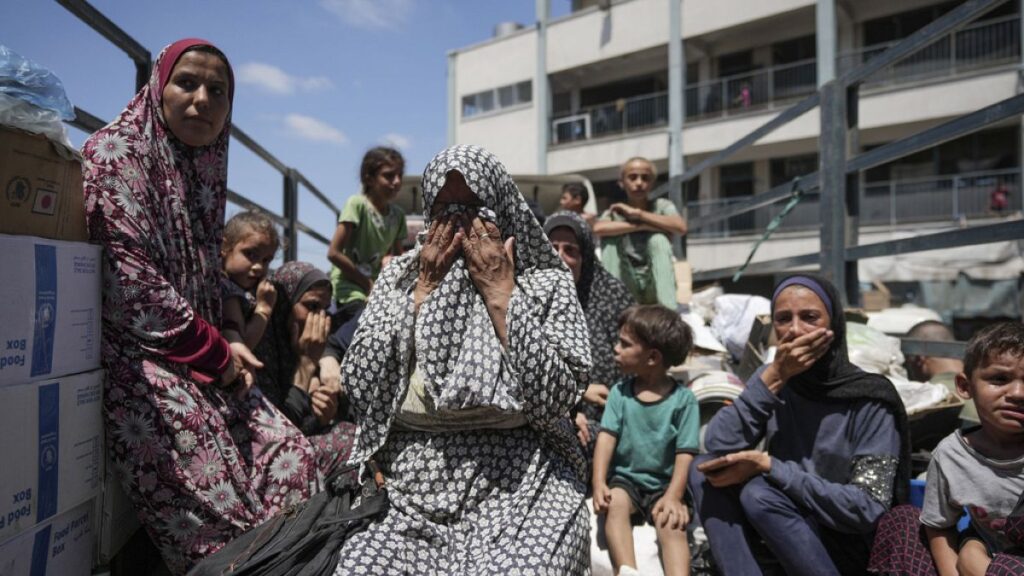António Guterres says the humanitarian situation in Gaza is in “freefall” and calls for a pause in the fighting so aid agencies can deliver 1.6 million doses of the nOPV2 polio vaccine to the enclave.
Palestinian health authorities have reported the first case of polio in an unvaccinated 10-month-old child in the Gazan city of Deir el-Balah.
After discovering the child’s symptoms, tests were carried out in Jordan’s capital Amman and the case was confirmed as polio, health officials said.
This is the First polio case reported in years in the coastal enclave devastated by the war between Israel and Hamas since last October.
The paralyzing, potentially fatal disease mainly affects children under five and is usually spread through contaminated water.
Pakistan and Afghanistan are the only countries where the spread of polio has never been stopped.
On Friday, UN Secretary-General António Guterres called for a seven-day pause in the fighting to allow agencies to launch a vaccination campaign across the Gaza Strip.
“We know how an effective polio vaccination campaign must be conducted. Given the total devastation of Gaza, vaccination coverage of at least 95 percent will be necessary during each round of the two-round campaign to prevent the spread of polio and reduce its emergence,” he said.
“I call on all parties to immediately provide concrete assurances, guaranteeing humanitarian pauses for the campaign.
Two rounds of polio vaccinations to be launched at the end of August and in September to try to prevent the spread of variant poliovirus type 2 (cVDPV2).
During each round of the campaign, the Palestinian Ministry of Health, in collaboration with the World Health Organization (WHO), the United Nations Children’s Fund (UNICEF), the United Nations Relief and Works Agency for Palestine Refugees (UNRWA) and partners, will provide two drops of novel oral polio vaccine type 2 (nOPV2) to more than 640,000 children under the age of ten.
More than 1.6 million doses of nOPV2which is used to stop the transmission of cVDPV2, will be delivered to the Gaza Strip. Vaccinations will be administered by 708 teams in hospitals, field hospitals and primary health care centres in each municipality of the strip. About 2,700 health workers, including mobile teams and outreach workers, will participate in both phases of the campaign.
Poliovirus was first detected in Gaza in July in environmental samples taken from Khan Younis and Deir el-Balah. The United Nations says the Gaza Strip has been polio-free for 25 years.
But polio is not the only health problem facing the Gaza Strip, where Palestinian health officials say more than 40,000 people have been killed by Israeli airstrikes and other attacks since the conflict escalated in October 2023.
Only 16 of Gaza’s 36 hospitals are partially functioning today and other medical services have been reduced to nothing. According to Oxfam, Israeli forces destroyed all of Gaza’s sewage treatment plants and 70% of its sewage pumpsmeaning that many streets in Gaza are flooded with water contaminated by untreated sewage, creating an environment conducive to the spread of disease.
This is especially dangerous during the hot summer months, when mosquitoes and other insects proliferate and food spoils more quickly.
As a result of the conflict, Gazans are facing an increase in respiratory infections, diarrhea, scabies and lice, rashes, chickenpox, jaundice and hepatitis A, among other health problems that are unlikely to spread beyond Gaza, as it is effectively cut off from the rest of the region.
Additional sources • adaptation: Serge Duchêne

